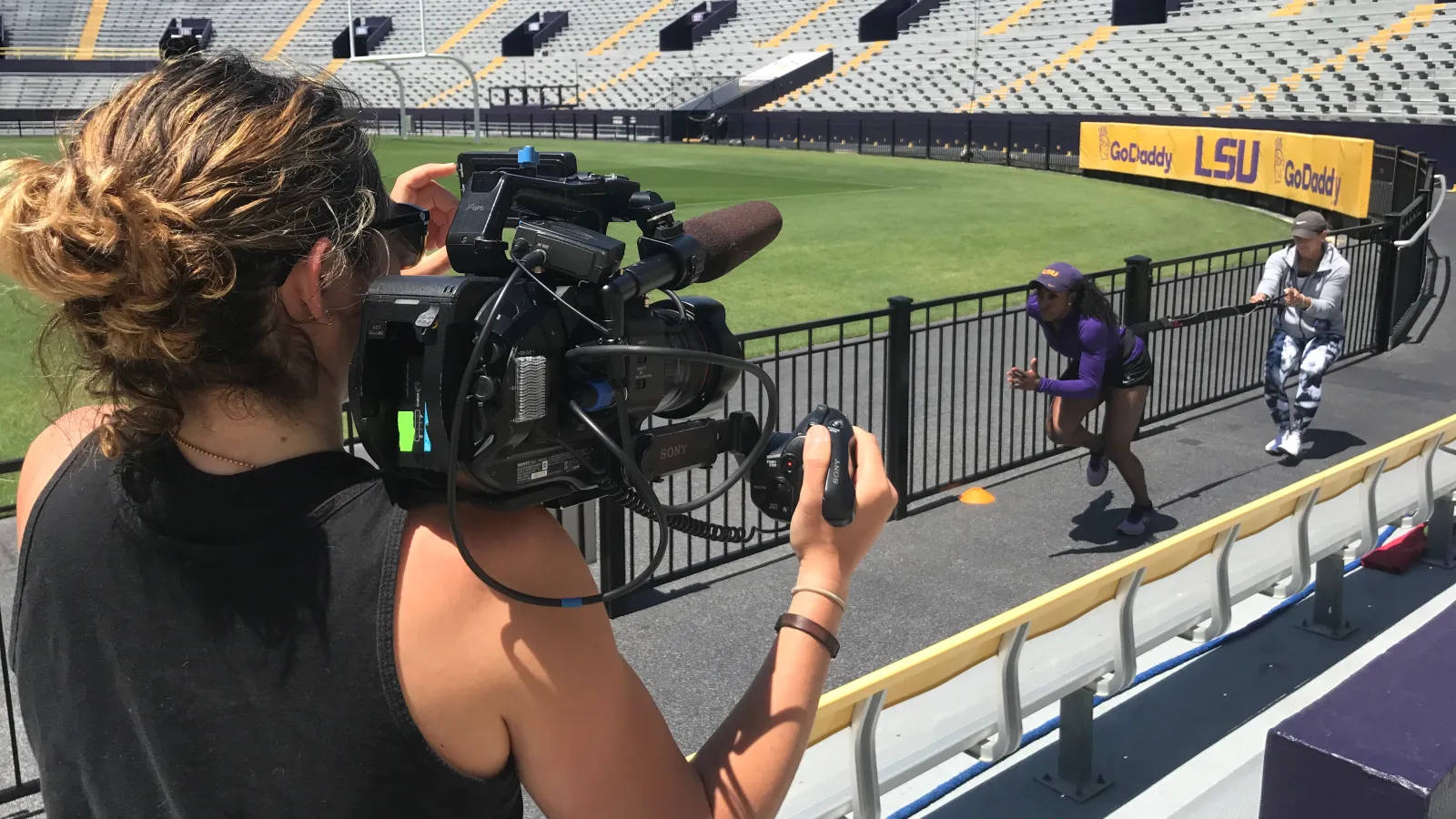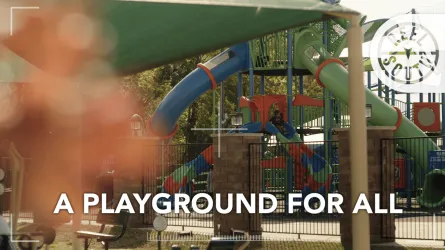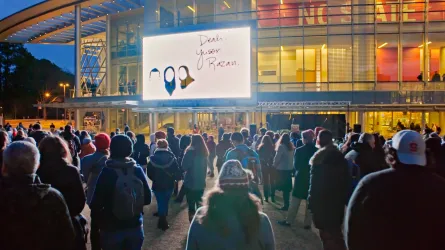Filmmaker Meg Shutzer and Rawlings Gold Glove-winning softball player AJ Andrews discuss their new Reel South SHORT film, Knocking Down the Fences. This interview was edited and condensed.
What motivated you to make this film / participate in this film?
Meg Shutzer: When I first learned about AJ Andrews, my initial thought was—how have I never heard of her? And my second thought was—people need to know this name. AJ Andrews should be a household name. If AJ were a man, we would all know about her uncanny ability to fly through the air and make diving catches in the outfield. I think I was motivated to make this film because the mainstream media hasn’t been covering her enough to introduce her to us.
AJ Andrews: My motivation to be a part of this film was to make sure that my story was told. I am a woman who shattered the glass ceiling and broke barriers as the very first woman to win a Gold Glove and that story did not get the attention it so rightly deserved. It was overshadowed by the men who have won, even though my achievement made history! Most accomplishments achieved by women in sports go under the radar and are not talked about or given the respect that is due. In order to change the narrative and make people pay attention and begin to hear our stories as women in sports, it’s important to yell them from the rooftops! Women must be loud about their achievements, and this film was another way for me to use my voice.
What audiences do you hope to reach?
Meg: First, all sports fans can appreciate AJ’s skill. And like I said before, I think the mainstream media hasn’t done enough to bring AJ to our attention, but once people see what she can do, it’s clear how remarkable she is. I also think that AJ’s story is really important for women and girls, especially black girls. AJ said this herself in one of our interviews, how critical it was for her to see someone who looked like her killing it on the field. She was referring to the Olympic softball player, Natasha Watley, who inspired her as a kid.
Women taking lead roles in their own careers and jobs are facing challenges, both in filmmaking, media and sport. How do you address the lack of recognition of female-lead work in your fields? How do you hope this film is recognized?
AJ: In order to address the lack of recognition of female-led work in my field, I continue to express my opinion. I continue to use my voice and my platform to expose these disparities. It is important to get away from the "it is what it is attitude" and move towards ‘it is what I make it!’ Women can sit back and hope for change or we can put in action and demand it! Being seen, supporting other women's causes, and facing injustice head on is the only way to knock it down. I'm gathering my girl tribe every single day with every woman I meet and encouraging women to be LOUD! Be loud about what you want, be loud about what you deserve and do not allow anyone to silence you.
I hope this film is recognized as empowering. I hope it is recognized as inspirational. I hope that it is a film that pushes you to the point where you say enough is enough. The plight of women in sports is large, but pressure is all it takes to make change. So, I hope this doc is a little more added pressure in the direction of change.
Meg: The film industry has been dominated by male directors and executives for a long time but the documentary community makes me hopeful about the future. I’ve seen an awareness about identity and representation in this community that goes beyond gender. I see funders asking hard questions of directors about why we are the right people to tell certain stories—questions that we need to be asking. I’m grateful for the discussions around race, class, gender, sexuality and all kinds of power dynamics in filmmaking. So, I guess, I’d say there’s a lot of potential to tackle the lack of representation and the inequity in film, and I hope we do better going forward.
Social Media for many under-represented groups and minority groups (women, people of color, etc.) can be an empowering and stifling place. How do you effectively work within this space? How receptive has the public been to the film’s message and AJ’s mission?
Meg: Social media allows folks like AJ to get their message out to the public without having to go through traditional media outlets. I’ve seen her do an incredible job posting stories and sharing motivational messages on Instagram and other platforms. As for myself, I could step up my social media game.
AJ: I work as a living breathing representation of conquering the "impossible". Representation is so important for individuals to see and believe that they can achieve anything that they want. I am moving forward in workspace motivating any and everyone that I come across and being a model for empowerment and possibilities.
Female athletes have proven to be some of the most progressive and activated in arguing for equality in the industry. Why do you think this is?
Meg: Having a marginalized identity, or any identity that isn’t the dominant one, can be helpful in terms of understanding how power dynamics play out across other identities—race, class, gender, etc. I think women tend to be better equipped to see inequity and to understand how important it is to speak up—both for ourselves and as allies to others.
AJ: I think that female athletes have proven to be some of the most progressive and active in arguing for equality in the industry because the disparities between the women in sports and men in sports are so vast and so public that it is hard to stay quiet. When men are blasted on TV for the doing spectacular things and women can barely be mentioned online for doing something just as exceptional, it becomes almost unbearable to stay quiet. When women in sports continue to sacrifice their body as well as their minds to achieve feats that only very few can actually do, and it goes unrecognized a certain type of fire burns that prevents one from remaining quiet any longer. Women in sports have to be bold in order to perform a sport that is extremely taxing. We work hard for every single success and the only reason that success isn't garnering attention is because of our sex. Just like we won't stand for unfair treatment in game, we won’t stand for unfair treatment outside of it.
Olympic years are incredibly important for professional female athletes in almost every sport. What are your hopes for softball and other women?
AJ: I hope that softball continues to grow and gains attention beyond this Olympic year. I hope that women in sports –– Olympic or not –– continue to get the recognition they deserve fighting to change societal views on women in sports. We are powerful and [we are] forces to be reckoned with, not just the ones wearing USA on our chest.
Category
Share


